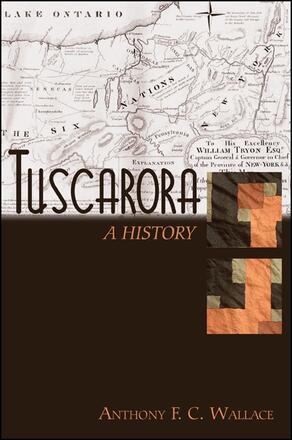
Tuscarora
A History
Alternative formats available from:
The definitive history of the Tuscaroras and their return to western New York.
Description
Tuscarora is the comprehensive history of the small Iroquois Indian reservation community just north of Niagara Falls in western New York. The Tuscaroras consider themselves to be a sovereign nation, independent of the United States and the State of New York. They have preserved a system of social organization and ideal public values, along with the Tonawanda Seneca and the Onondagas that retains matrilineal clans, and a Council of Chiefs nominated by the clan matrons. Over the course of their existence, however, the Tuscarora have faced many struggles. Stemming from over sixty years of research, Anthony F. C. Wallace follows their story of overcoming war and loss of population, migration from North Carolina in the 1700s, the emotional trauma and social disorders resulting from discrimination and abusive conditions in residential boarding schools, and successful adaption to urban industrial society. Wallace weaves together historical detail, ethnography, and his own personal reflections to offer a unique and sweeping look at this fascinating group of people.
Anthony F. C. Wallace is Professor Emeritus of Anthropology at the University of Pennsylvania. He is the author of many books, including The Death and Rebirth of the Seneca.
Reviews
"This delightful book reads more like a memoir than an ethnographic history, but it is filled with great ethnographic and historical perspectives. Demonstrated in the text is a sense of humility—in essence, Wallace writing candidly about being corrected by community members, including his hosts … overall Wallace adds to the growing aggregate of Haudenosaunee cultural and historical books … Highly recommended." — CHOICE
"…an accessible, insightful, and challenging work that embodies the self-aware, self-critical thinking that now characterizes the discipline of anthropology … Tuscarora: A History is free of illusions, worshipfulness, pity. It's an exercise in, and an exemplar of, 'the good mind.'" — Artvoice